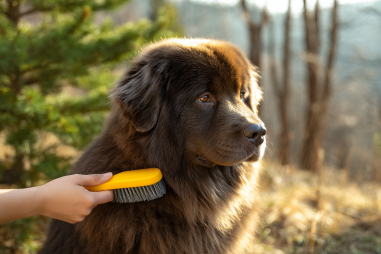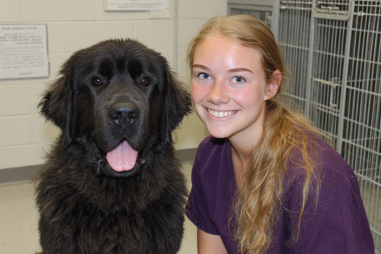The Newfoundland dog, with its massive size and striking appearance, has long captured the hearts of dog lovers around the world. Yet, despite its popularity, several myths surround this gentle giant, often leading to misunderstandings about their nature, temperament, and care requirements. In this article, we’ll unravel common misconceptions, shed light on fascinating facts, and explore how these myths have shaped the breed’s reputation over the years. Whether you’re considering adding a Newfoundland to your family or simply intrigued by this majestic breed, understanding the truth behind these stories is essential for promoting responsible ownership.
Common Misconceptions About Newfoundland Dogs
Newfoundland dogs are often surrounded by myths that exaggerate or distort elements of their personality and physical characteristics. One of the most persistent myths is that Newfoundlands are uncontrollably drooly or overly aggressive. Many potential owners shy away from the breed because of this stereotype, fearing a wild or difficult companion. In reality, drooling varies widely among individual dogs and is not excessive for all Newfoundlands. Aggressiveness is also uncommon in the breed, which is known for its calm and gentle disposition.
Another common misconception is that their large size makes them unsuitable for most homes or families. While Newfoundlands are certainly a giant breed, they are surprisingly adaptable to various living environments, provided they receive appropriate exercise and mental stimulation. It’s also wrongly assumed that because they are so big, they require exorbitant amounts of food and care, which isn’t necessarily true when managed correctly.
Some people believe that Newfoundland dogs are lazy and inactive due to their slow-moving appearance. However, this breed has a strong work ethic and excels in activities that many wouldn’t expect, such as water rescue and agility. Their seemingly sluggish demeanor often hides a playful and loyal spirit.
Real Facts About Size, Temperament, and Care
Newfoundland dogs are indeed among the largest dog breeds, typically weighing between 100 to 150 pounds, with males often tipping the scale towards the higher end. Their size contributes to their power and strength, which historically made them excellent working dogs, particularly in water rescue conditions where their swimming ability was a life-saving asset.
Their temperament is one of their most celebrated qualities. Known as “gentle giants,” Newfoundlands are famously friendly, patient, and incredibly loyal to their families. Their natural tendency is to be calm and tolerant, especially with children, which makes them excellent family pets. Despite their size, they are usually very sociable and friendly to strangers, which counters the myth of aggressiveness.
In terms of care, their thick, double coat requires regular grooming to prevent matting and manage shedding. While their size might seem daunting for grooming, a consistent routine during shedding seasons can keep them clean and comfortable. Exercise needs are moderate; Newfoundlands enjoy swimming, walking, and playing but do not require excessive high-impact activity.
Historical Myths Explained
The breed’s history is rich with stories that sometimes blur fact and folklore. One legend is that Newfoundlands were bred from crosses between Saint Bernards and other large breeds, but DNA evidence shows their lineage is more complex and native to Newfoundland, Canada. Their reputation as water rescuers comes from real and documented history: they helped fishermen haul nets, carried boat lines to shore, and saved lives from turbulent Atlantic waters.
Another historical myth claims that these dogs were primarily used as guard dogs or fierce protectors, but this contradicts their true nature as peaceful working dogs. Their strength was never aimed at aggression, but at assisting humans in physically demanding tasks. These myths often arise from misinterpretations of their imposing physical appearance rather than their actual temperament.
How Myths Affect Breed Reputation
Unfortunately, myths surrounding Newfoundland dogs sometimes work against them, making potential owners hesitant about adopting or purchasing the breed. Misconceptions about aggressiveness or excessive drooling contribute to a stigma that the dogs are unruly or unmanageable. This can lead some people to avoid them altogether, depriving these dogs of loving homes.
Conversely, exaggerating their traits can also set unrealistic expectations. For instance, expecting a Newfoundland to be either completely lazy or a nonstop swimmer can result in frustration for owners who don’t understand the breed’s real needs and limitations. Misunderstandings about their grooming or exercise requirements can lead to neglect or improper care.
Positive reputation, however, is growing through responsible breeders, owners, and advocates who share truthful accounts of the breed’s nature. Community education is helping debunk myths, encouraging more informed decisions that benefit both the dogs and their owners.
Promoting Responsible Ownership of Newfoundland Dogs
Responsible ownership is crucial when welcoming a Newfoundland dog into your life. Understanding their physical and behavioral needs is the first step to providing a happy and healthy environment. This includes:
- Consistent grooming: Regular brushing to manage shedding and prevent matting of their thick fur.
- Proper diet: Feeding a balanced diet appropriate for large breeds, avoiding overfeeding to prevent obesity.
- Moderate exercise: Ensuring daily walks and opportunities for swimming or water play, which they love.
- Training and socialization: Early socialization helps maintain their gentle temperament and builds confidence around people and other animals.
- Health monitoring: Being aware of breed-specific health issues, such as hip dysplasia or heart conditions, and scheduling regular veterinary care.
Moreover, dispelling myths when communicating with family, friends, and the wider community helps foster a positive image of this breed. Families interested in Newfoundland dogs should do thorough research and seek advice from reputable breeders, rescue groups, and experienced owners.
Understanding the True Nature of the Newfoundland
At its core, the Newfoundland dog is a symbol of quiet strength, unwavering loyalty, and gentle kindness. Uncovering the truth behind myths and embracing the facts enables us to appreciate these giant companions for who they truly are. Each Newfoundland is unique but generally shares the traits of a loving guardian who thrives in a home where respect, care, and knowledge guide their treatment.
By promoting accurate information and responsible ownership, we can ensure that this wonderful breed continues to inspire admiration and affection for generations to come, free from the shadows of misconception.







